Aramco Asia co-organizes the 8th International Symposium on Future of Automobile Engines
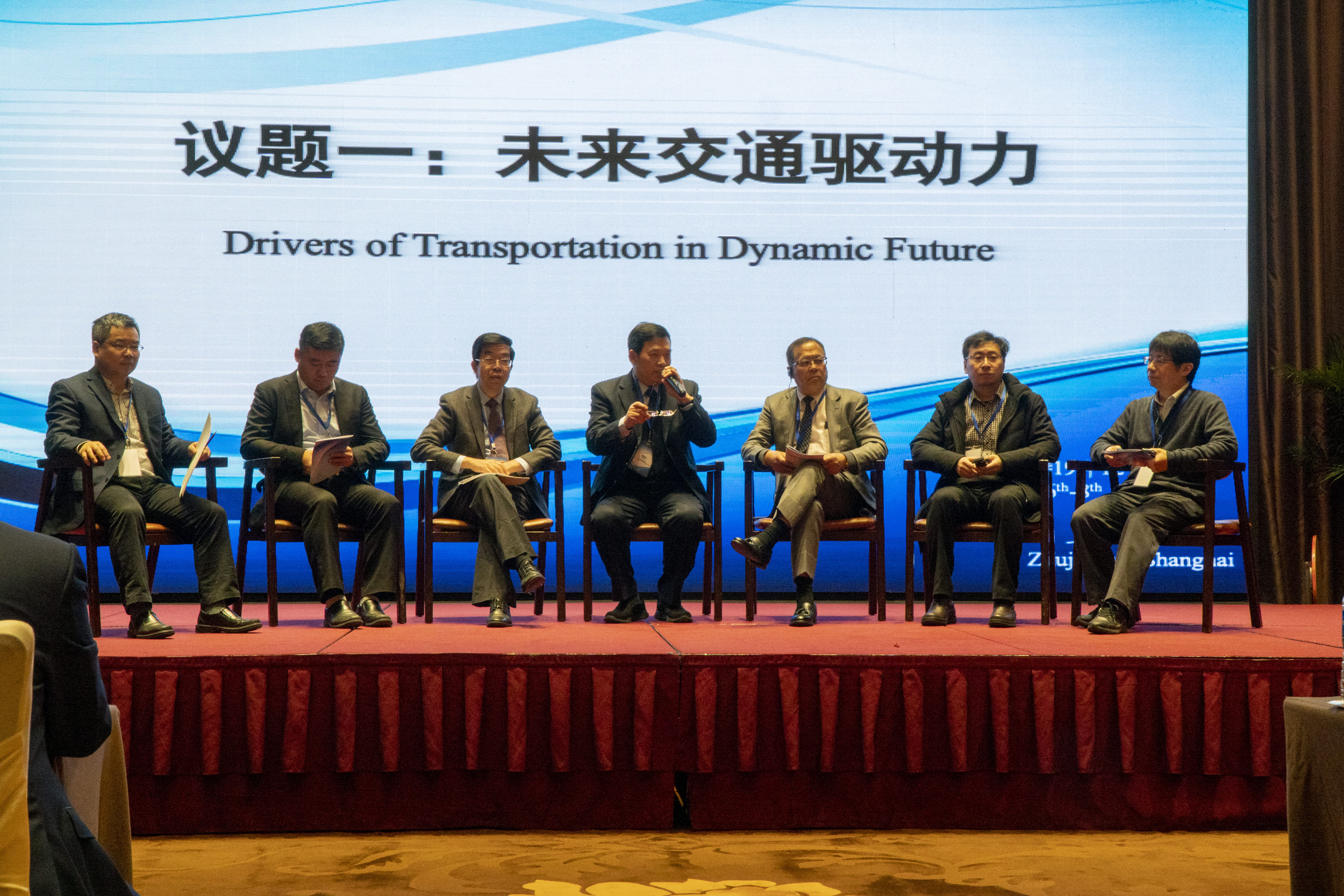
The panel, with speakers from academia, regulatory bodies and manufacturers, sharing their views on the drivers of future transport.
- Working with partners in China to promote the use of sound science to guide technology development as we enable the transition to a more sustainable transport future.
Shanghai, China, December 9th, 2019 – The need for robust scientific methods to inform the development of effective transport policies emerged as a key theme in the recently concluded 8th International Symposium on Future Automobile Engines in Shanghai, China. As corporate partners, Aramco Asia and Toyota Motor Beijing, co-sponsored the workshop, which was held on the 7th and 8th of December 2019, and hosted by one of the top engineering universities in China, Shanghai Jiao Tong University. The workshop was attended by about 100 participants representing government entities, prominent researchers from China, Japan and the United States, as well as leading manufacturers of passenger and commercial vehicles.
This is a timely workshop as the transport sector is now at a critical juncture, especially as decision makers weigh the technological options for the future. In his opening speech, the Vice President of Shanghai Jiao Tong University and academician of the Chinese Academy of Engineering, Professor Dr. Huang Zhen, said, “Transport technologies are rapidly evolving, and they should be allowed to compete on a level playing field for the market to decide. It is time that life cycle assessment enters a new phase of policy-relevant guidance as we enable a sustainable transport future.”
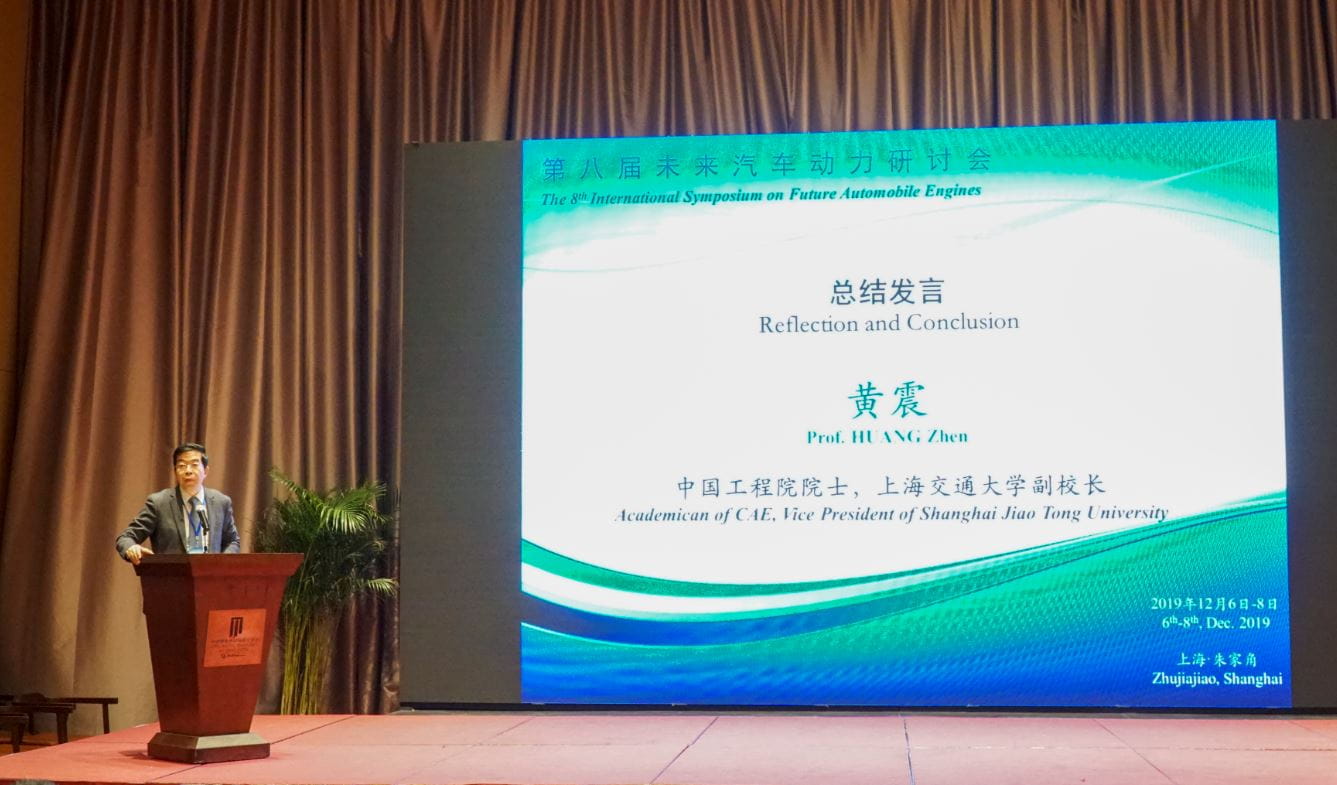
Professor Dr. Huang Zhen addressed the symposium, highlighting the importance of technology-neutrality for future automobile engines.
The life cycle assessment approach evaluates the effectiveness of a technology, or policy solution, by assessing the impacts it has throughout the entire life cycle, from cradle-to-grave. This is unlike a traditional environmental impact assessment technique that tends to focus on the end-use phase of the technology, which risks unintentionally shifting the environmental burden from one sector to another without necessarily addressing the problem it was intended to deal with.
This was further reinforced by Mr. Fahad Al Othman, the China Country Manager of Aramco Asia, who said, that “Modern society is just too complex for us to force one technology to meet all of society's needs for sustainable mobility.”
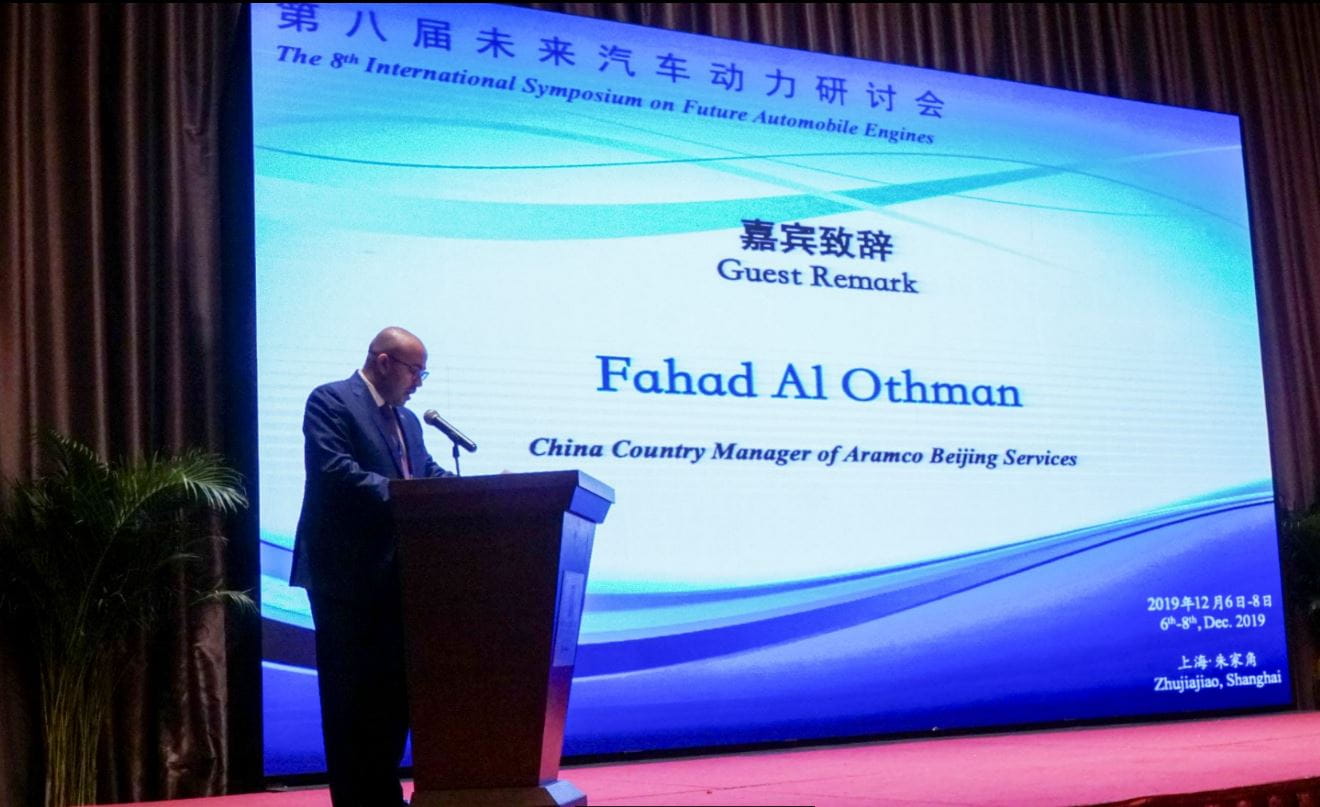
Fahad Al Othman addresses the Symposium to encourage the brainstorming among experts so as to meet the needs for sustainable mobility.
The workshop in Shanghai has been held for nine years as a means to build consensus and create alignment among key transport stakeholders in China. It presents an opportunity for cross-fertilization of ideas to promote rapid developments in advanced technologies especially as we transition to a more sustainable transport future.
This is particularly important given the common misconception that any technology that has zero tailpipe emissions must be better for the environment than an internal combustion engine.
“Tailpipe emissions are only part of the story, and any technology in the transport sector must be evaluated thoroughly, across its entire life cycle, from cradle-to-grave”, said Dr. Amer A. Amer, Chief Technologist at the Dhahran R&D Center's Fuel Technology research team in Saudi Aramco.

Dr. Amer A. Amer presenting the trends and opportunities for road transport, stressing the importance of using life cycle assessment to evaluate competing technologies.
According to Mr. Mitsuto Sakai, Vice Director of Toyota Motor Beijing Engineering & Manufacturing, “It is important to consider the CO2 emissions associated with the production and supply of the energy sources,” and he added that “there is further opportunities to improve the thermal efficiency of the internal combustion engine through hybridization and the use of low carbon fuels.”
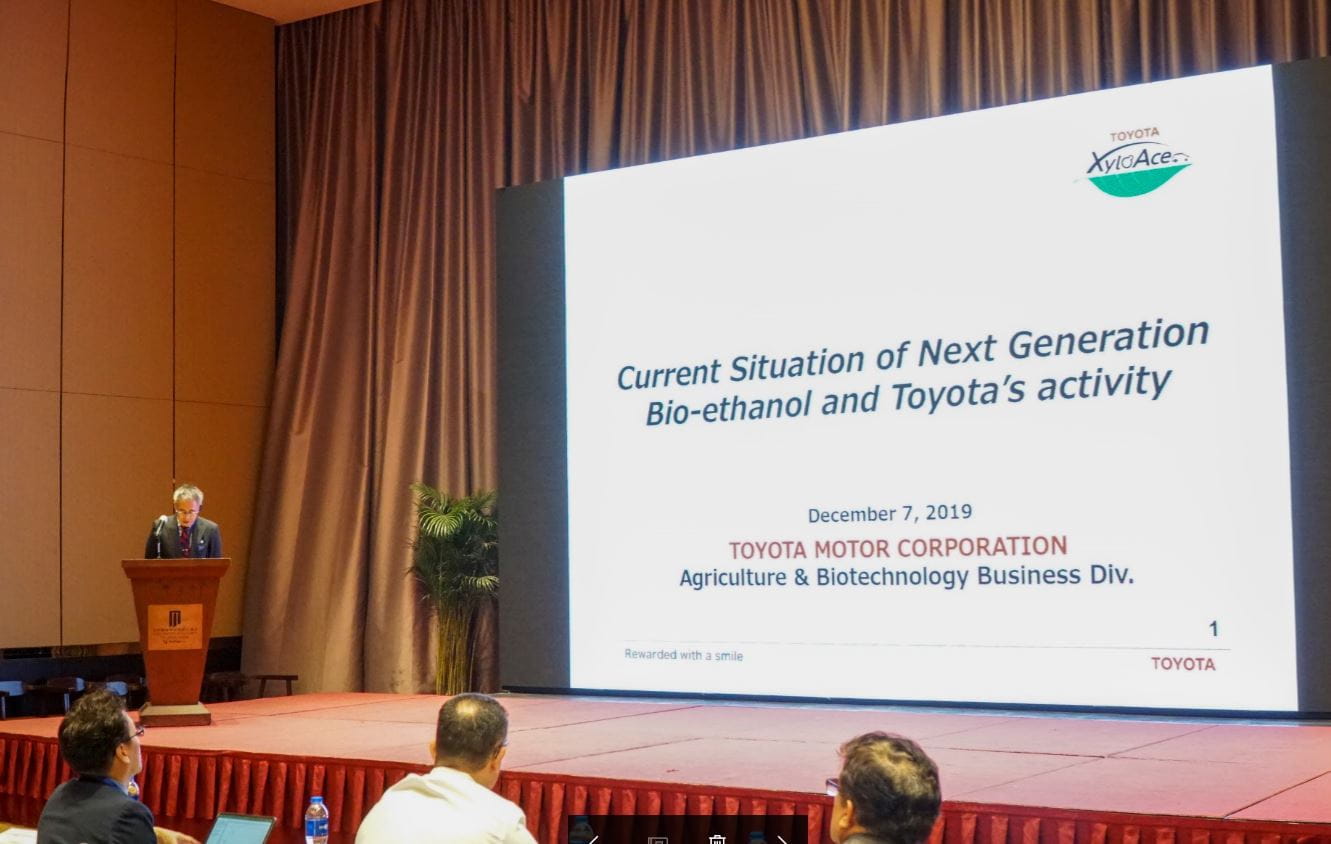
Shoichi Ichikawa introducing Toyota’s mobility solutions for a low carbon society, sharing its views on the future of automobile engines.
Given the scale of the challenges faced by the transport sector, collaboration will play a pivotal role. The gathering of leading experts during this workshop in Shanghai was an important start as the industry embarks on a journey towards a more sustainable transport future.
The workshop, which was divided into 3 sessions, featured 20 presentations from leading researchers and industry players, as well as 4 insightful panel discussions.
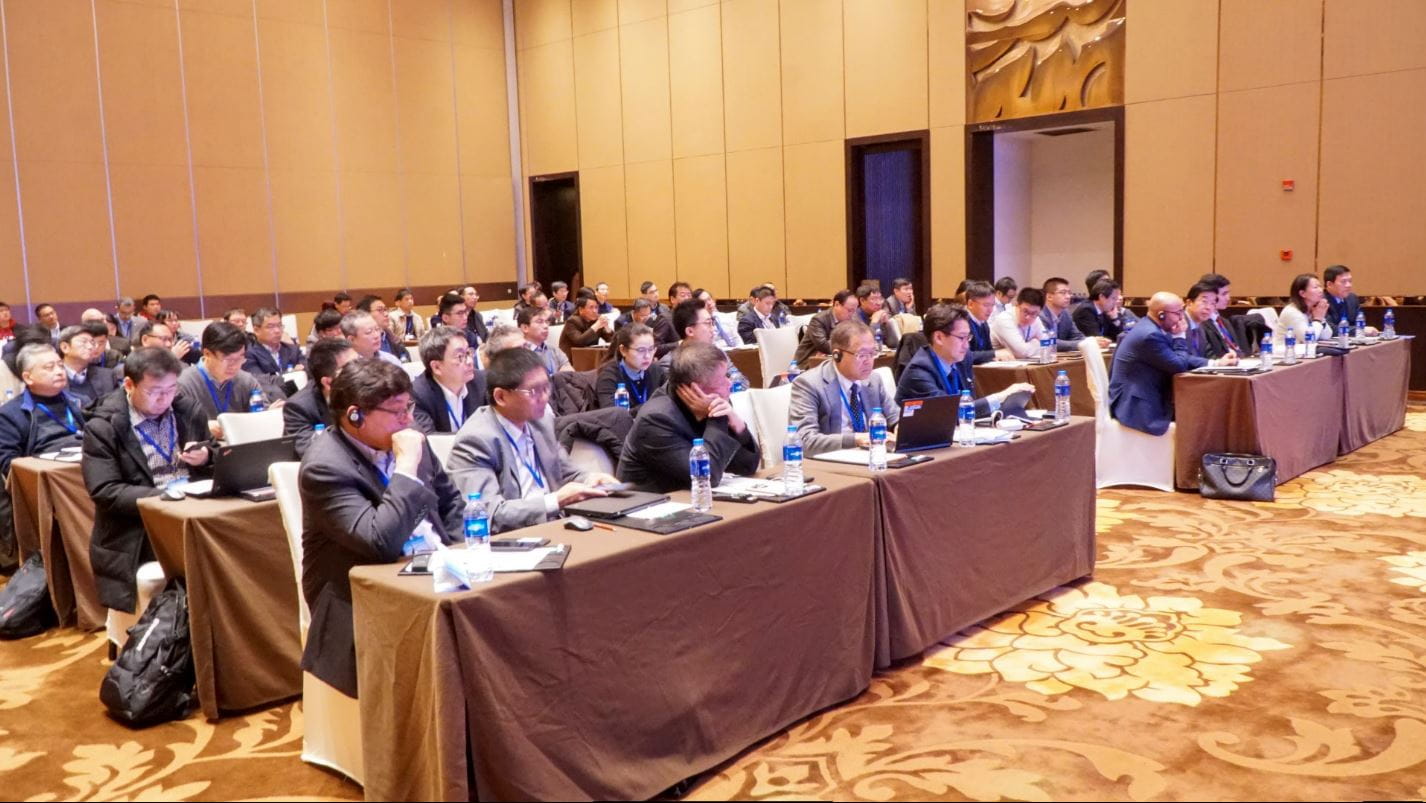
A glimpse of the 8th International Symposium on Future Automobile Engines
Saudi Aramco delivered three presentations to share its perspective on the opportunities for advanced technologies for the road transport sector, pathways towards future hydrogen-based mobility, and a life cycle assessment case study comparing between two emerging technologies for heavy-duty trucks. The study found that the total lifecycle greenhouse gas emissions for an electric truck depends critically on how the electricity is generated, and in many geographical regions that have yet to decarbonize the power sector adequately, there is a bigger opportunity to reduce emissions through the deployment of advanced efficiency technologies in internal combustion engines.
Aramco's active participation in the symposium is an example of the Company's long-term commitment to meaningfully contribute to the development of sustainable and affordable mobility for China. Given the success of this workshop, Aramco intends to continue to be engaged with our esteemed partners to advance the discussions on future automobile engines.
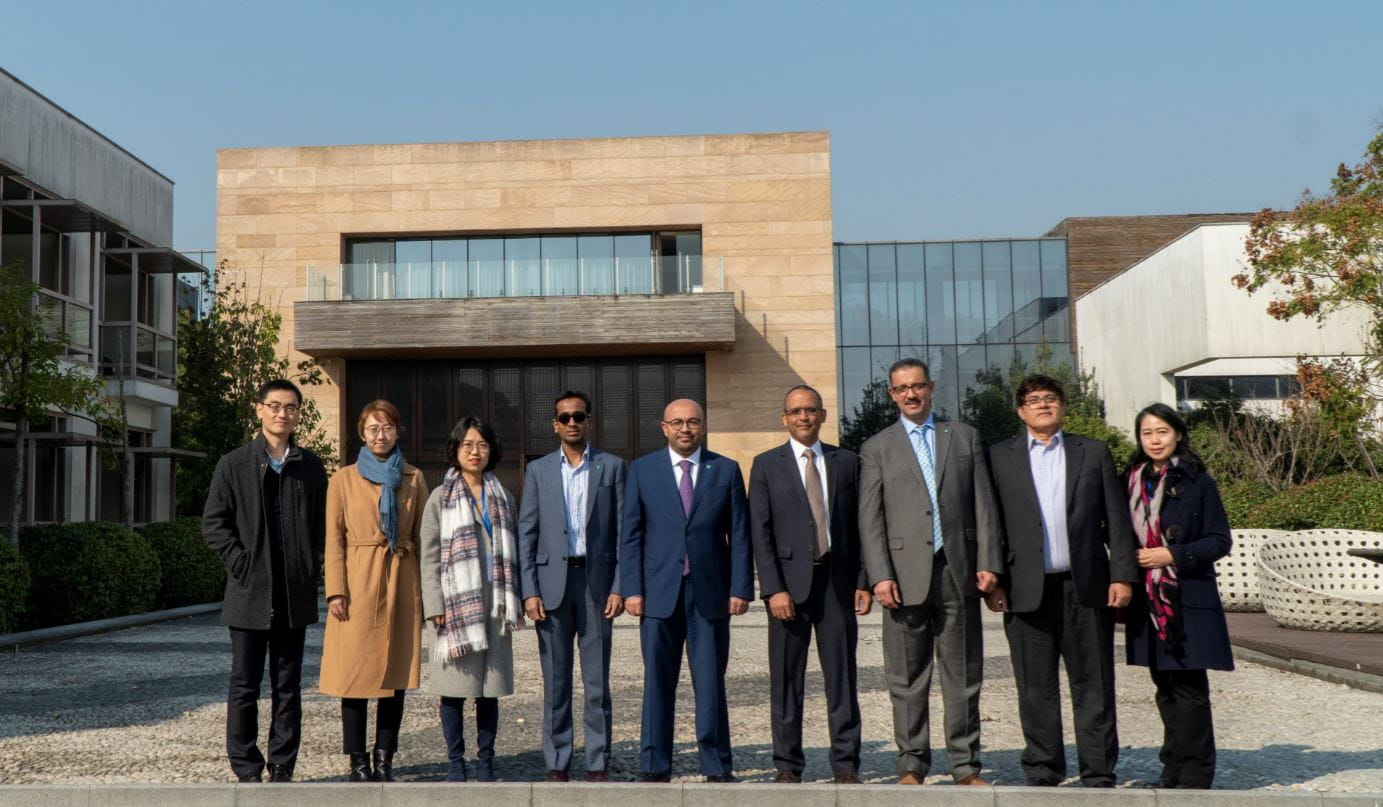
Aramco’s active participation in the symposium demonstrates the company’s long-term commitment to contribute to the development of sustainable and affordable mobility in China.

.jpg?cx=0.5&cy=0.5&mw=10)

